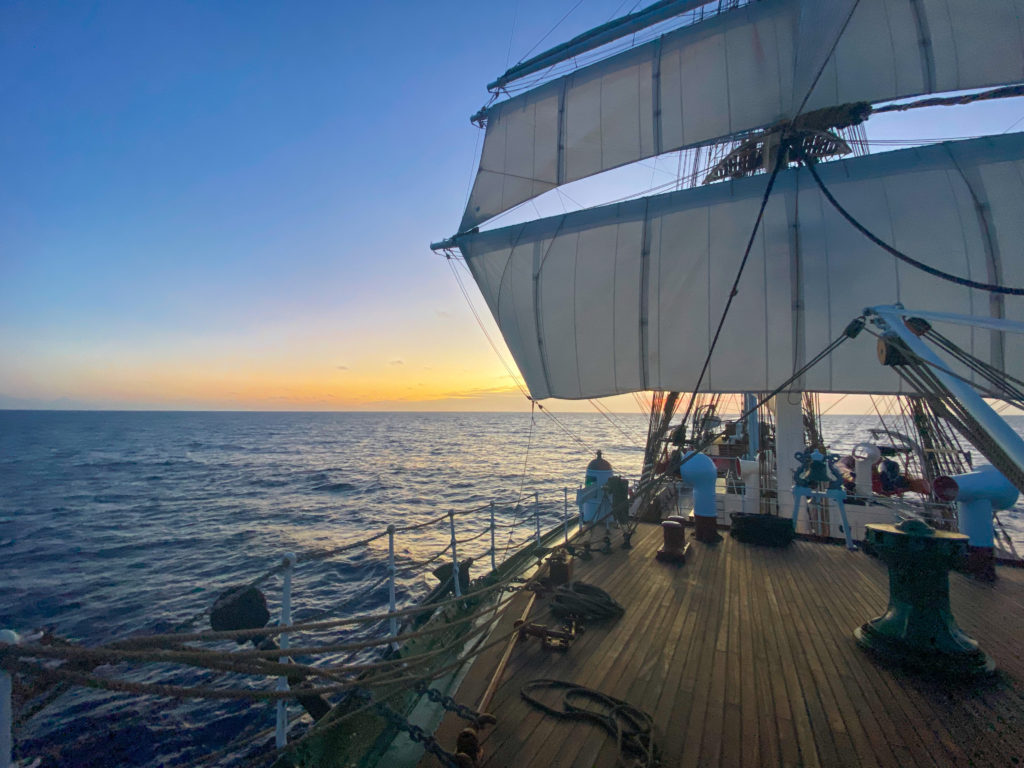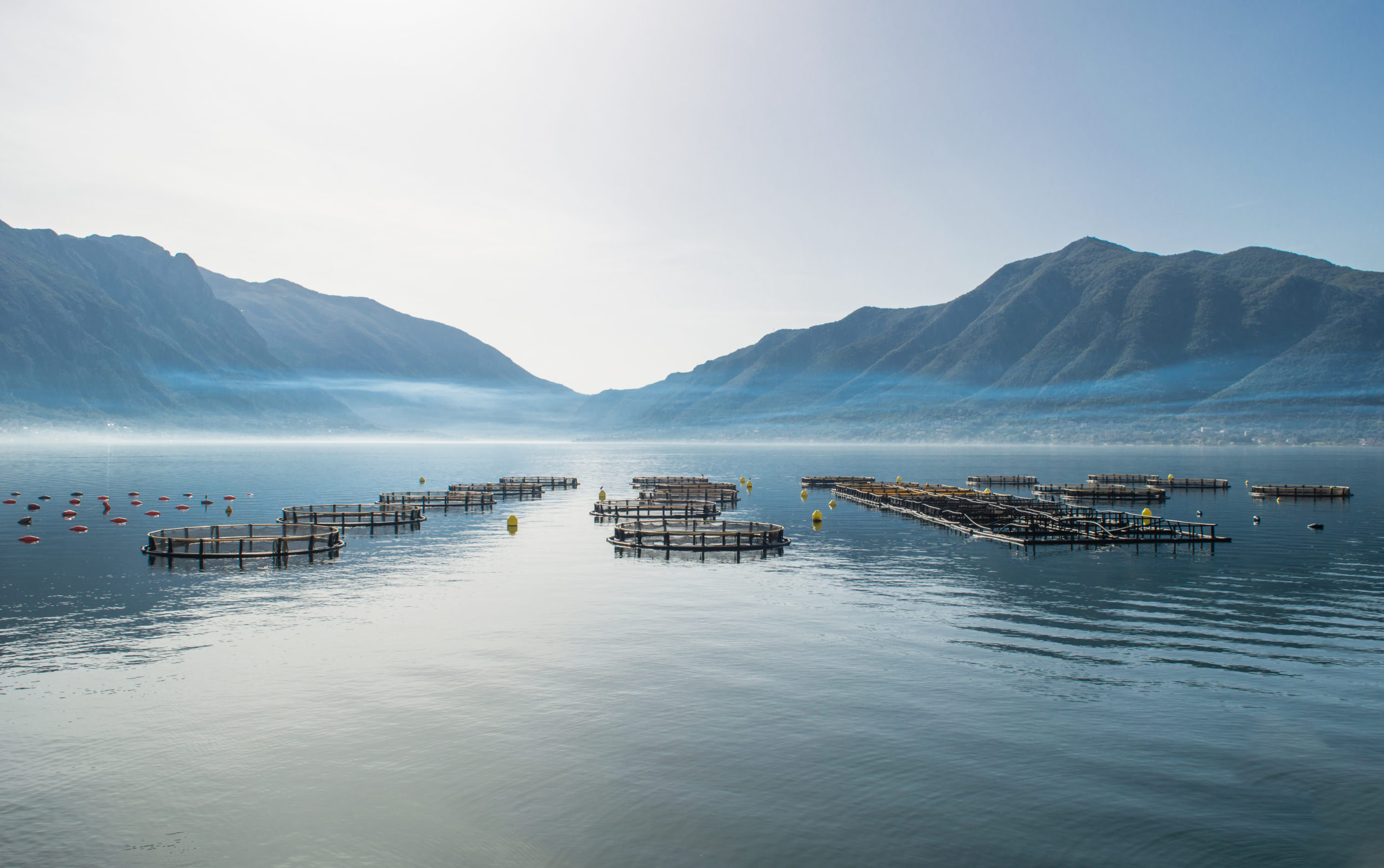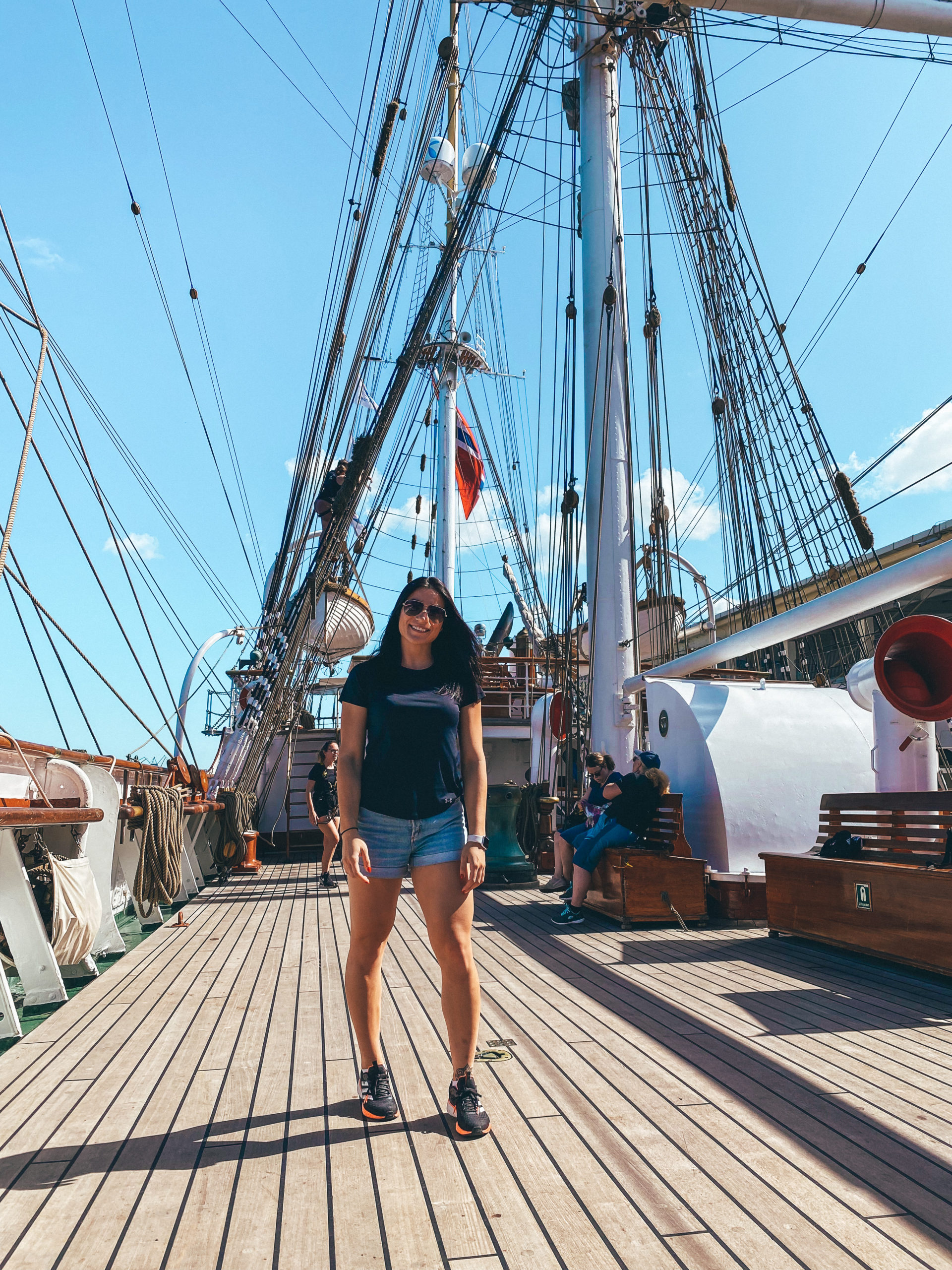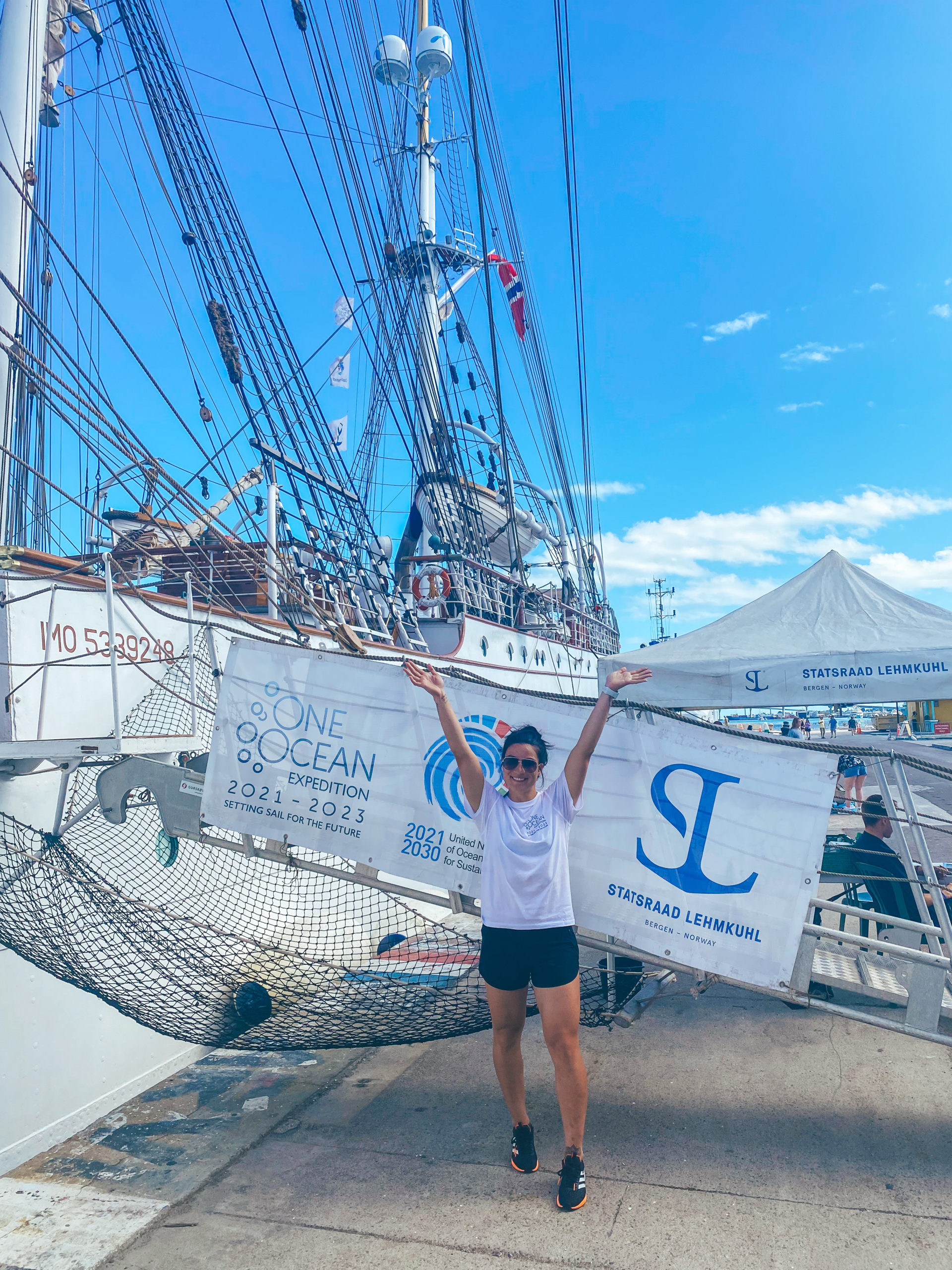
The One Ocean Expedition has Arrived in Miami
Wow, I can’t believe we’ve made it to Miami – my final stop onboard the One Ocean Expedition.
It feels bittersweet that this journey is coming to an end. I can’t believe how fast time has gone by!
On this leg from Nassau to Miami, we were joined by Mowi’s Chief Technology and Sustainability Officer, Catarina Martins. Catarina has a wealth of knowledge about sustainable aquaculture and Mowi’s salmon farming operations around the world. I feel so fortunate to have had this opportunity to pick her brain – I think I’ve learned more about aquaculture over these few days than I ever have before!
Catarina facilitated our workshops on this leg of the journey. We are trying to explore the role of key stakeholders in supporting marine aquaculture to realize its potential as a sustainable ocean economy.
We were trying to answer questions like:
- What are the 3 main actions that governments could take on supporting marine aquaculture to fully realize its potential as a sustainable ocean economy?
- What are today’s main challenges to accelerate the implementation of these actions?
- What are the top three innovations needed in marine aquaculture to fully realize the blue food potential as a sustainable ocean economy?
- What are the main challenges today in marine aquaculture which slows down implementation of innovative solutions?
- How is today’s education in marine aquaculture supporting its sustainable development?
- What are the key competences needed from the future workforce to support a sustainable marine aquaculture?
- How can partnerships increase their impact on supporting marine aquaculture to be even more recognized as a sustainable ocean economy?
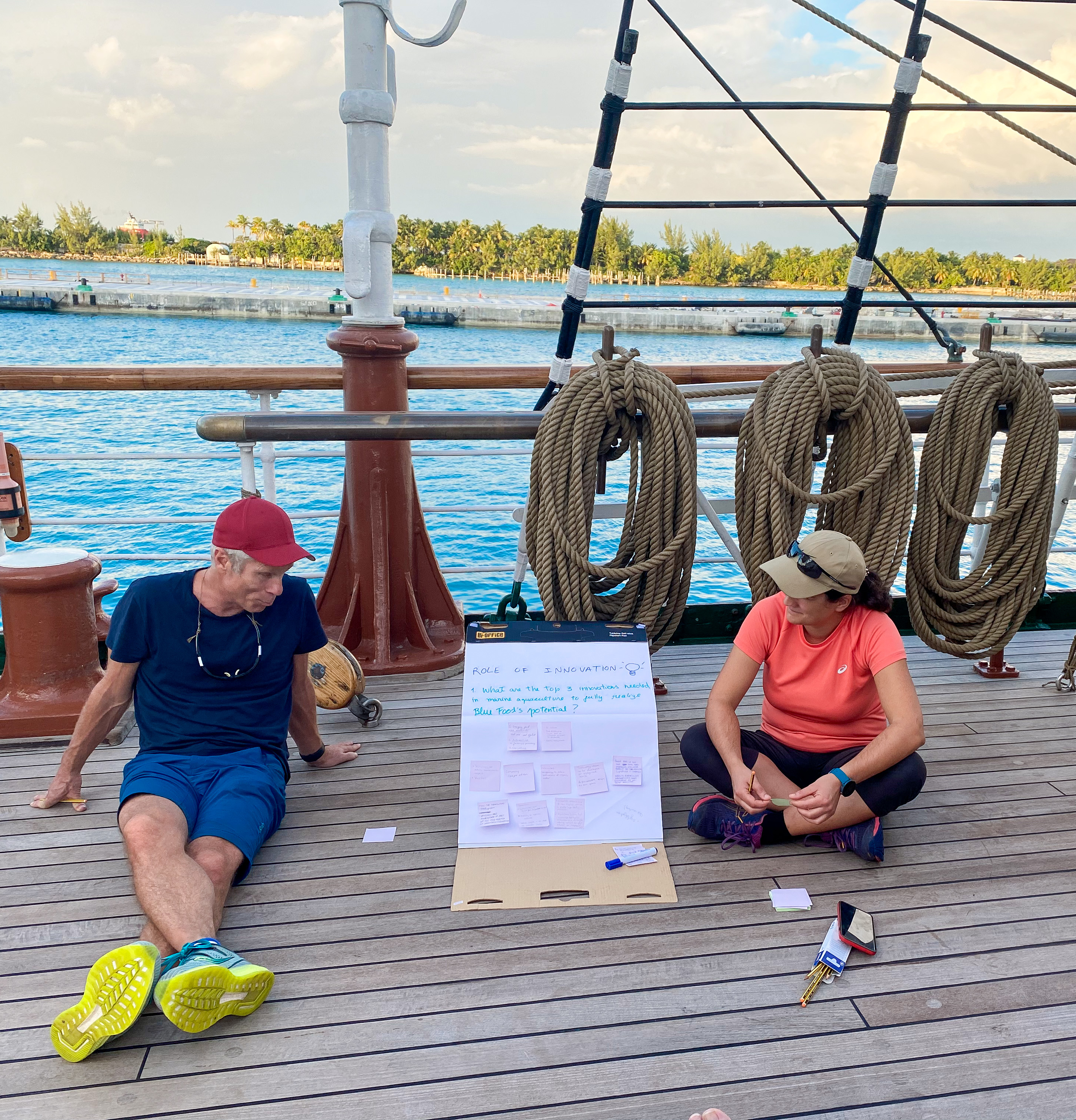
Education and Communication
Of course, given my role as a science communicator, I was particularly interested in our conversations around the role of education in realizing the potential of sustainable aquaculture.
It was interesting to hear about the different education experiences from the scientists in our workshops. While almost all had gone to school for marine-based programs, not all of them learned about aquaculture. We spoke at length about how aquaculture sometimes seems to exist in its own silo, not quite fitting into marine biology programs or in nutrition programs, but rather being treated as a subject of its own.
As a graduate from “Canada’s Food University” I couldn’t agree with this more. One of the main reasons that I decided to pursue post-secondary education was because I was frustrated with the inability of decision-makers to recognize fish as food. I thought the University of Guelph, with its strong focus on food research, was a good place to address this. But rather, I continued to be frustrated by the lack of seafood research coming out of “Canada’s Food University”.
It seems that we still have a lot of work to do to remind people that fish is food.
We also talked about the absence of aquaculture and education about fish as food in earlier education like primary school and high school. Some of the scientists with young children spoke about their concerns for young kids who aren’t learning about seafood and aquaculture at a young age.
I began to wonder about how much different the world would be if children were taught about the oceans and seafood from a young age. So much of the work I do, especially in Canada, is a direct result of people not knowing enough about the seafood industry. If people were taught about seafood, aquaculture, and the oceans from an early age…well, I might be out of a job, but I think that’s a loss I’d be willing to take for a population better-informed about seafood! 😉
I was grateful to have the opportunity to share my own experiences as an online content creator and the strategies that have been effective for communicating seafood science to the general public. Though I’m not sure I quite convinced all the scientists that they should be on TikTok, they all recognized the importance of better communication between scientists and the public when it comes to seafood.
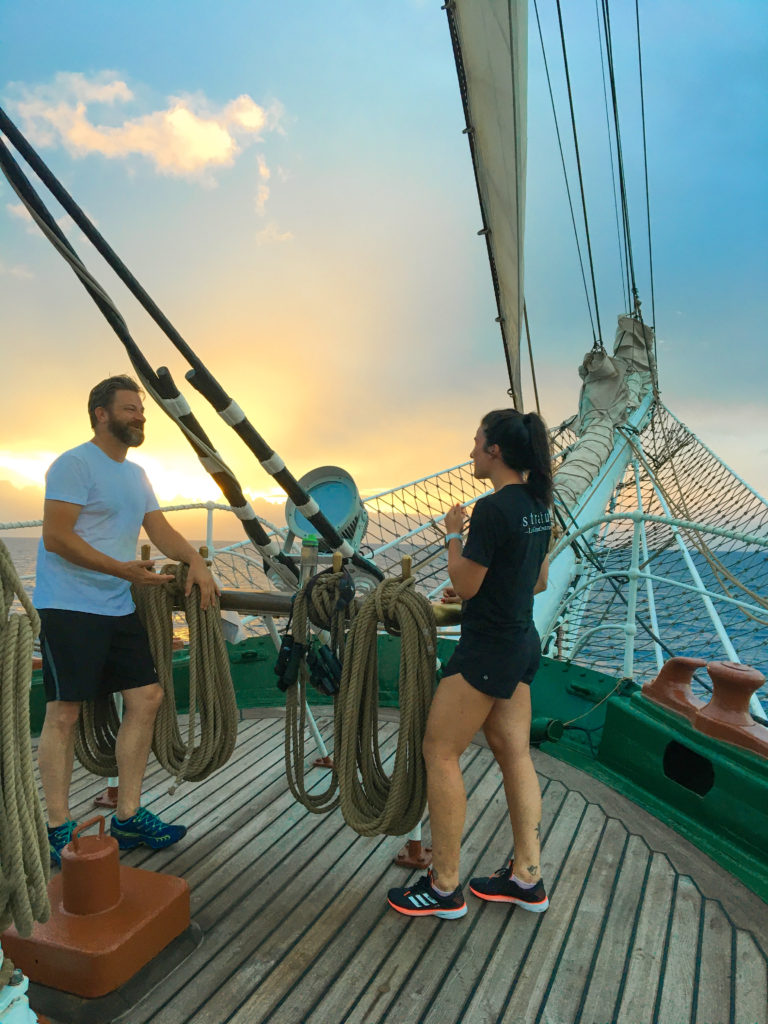
Even though it’s been a short journey, I’ve still got a few daily diary thoughts to share.
Emily’s Onboard Diary
Sunday December 5 – Departing Nassau
Our new workshops have kicked off today and I am so excited about it!
Our workshop on the leg from Nassau to Miami is being coordinated by Mowi’s Chief Technology and Sustainability Officer, Catarina Martins. She is INCREDIBLE! So knowledgeable about the sector and very attentive and patient when it comes to answering questions and accounting for other people’s perspectives.
I can already tell that this is going to be a wonderful learning experience.
Oh, and one final thing before I log off – today I finally conquered the rig! I really surprised myself. The first day that I got on the ship I had told myself I would never go up in the rig, but after a few days of pushing my own boundaries and opening myself up to new experiences, I felt ready to try the rig.
I’m not quite sure I’ll do it again, but at least I conquered it once!
Monday December 6 – at sea
We talked a lot about the role of education and communication in the aquaculture industry today – aka, my area of expertise!
It was a really lengthy and thought-provoking session, but one that reaffirmed the need for people like me in this space.
There is so much great work being done in aquaculture innovation, scientific advancements, new technology, and great partnerships, but it’s just not being communicated enough!
I’m hoping that my time here on the ship will be a step towards changing that.
Tuesday December 7 – Arriving in Miami
We’ve made so much progress on our workshop conversations in such a short time. I’m so pleased with how informative and thought-provoking the conversations have been.
Even though I’ve reached my final destination, the fun isn’t over yet! Tomorrow, there is a seminar event with a lineup of great speakers who will be talking about the future of blue foods and sustainable aquaculture development. I’m one of the aforementioned great speakers ;). I have the opportunity to speak on a panel and share my insights about young seafood consumers and effective communication strategies for the seafood industry. I can’t wait! Now, time to prepare!
